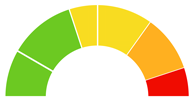Description: Malwarebytes Anti-Exploit 4.4.0.220 is vulnerable to arbitrary file deletion and denial of service via an ALPC message in which FullFileNamePath lacks a ‘�’ character.
CVE-2023-27469
CVSS Score: 7.1 (HIGH)
EPSS Score: 0.04%
Risk Score: 4.97 (MEDIUM)
Risk Score based on CVSS score and EPSS. This score is for reference purposes and is not internationally recognized.


Mitre ATT&CK Technical v15.1
T1587.001 – Malware
T1107 – File Deletion
T1588.001 – Malware
T1070.004 – File Deletion
T1053.002 – At
Technical Analysis & Mitigation Measures
1. Technical Attack Analysis
The vulnerability CVE-2023-27469 in Malwarebytes Anti-Exploit can lead to arbitrary file deletion and denial of service (DoS) due to improper handling of ALPC (Advanced Local Procedure Call) messages. Specifically, the issue arises from the FullFileNamePath variable not being null-terminated (`’�’`), which can allow an attacker to manipulate file paths and potentially delete critical files or render the system inoperable.
Attack Techniques:
– T1587.001 – Malware : Attackers might create malware that exploits this vulnerability, enabling unauthorized file deletion, which can be used to disrupt services or manipulate data integrity.
– T1107 – File Deletion : Exploiting this vulnerability allows attackers to delete files, which can include logs, backups, or other essential files, leading to data loss and potentially hindering recovery efforts.
– T1588.001 – Malware : The presence of malware could be indicative of a broader attack strategy where exploitation of this vulnerability facilitates further malicious activities.
– T1070.004 – File Deletion : Attackers may use the capability to delete files to cover their tracks, erasing logs and evidences of intrusion.
– T1053.002 – At : The vulnerability could be exploited in conjunction with other techniques to create a denial of service, making the system unavailable to legitimate users.
Potential Impacts :
– Data Loss : Critical files may be deleted, leading to operational disruptions.
– Service Downtime : Denial of service impacts the availability of the software and may affect dependent services.
– Compromise of Security : The ability to delete security logs can prevent detection of malicious activities, increasing the risk of further exploitation.
2. Mitigation Measures
– Strengthen Security Configurations :
– Enable multi-factor authentication (MFA) for all administrative accounts.
– Restrict permissions for users to limit access to critical files and system settings.
– Ensure that the Malwarebytes software is configured to use the highest security settings available.
– Utilize Specific Tools or Security Software :
– Deploy antivirus solutions that include real-time protection against known exploits.
– Implement intrusion detection systems (IDS) to monitor for abnormal activity that may indicate exploitation attempts.
– Use application whitelisting to ensure only approved applications can run on the systems.
– Implement Monitoring and Reporting Practices :
– Enable detailed logging of system and application events to capture activity related to file access and deletions.
– Set up alerts for unusual activities, such as multiple file deletions or changes in critical directories, to facilitate early detection of potential exploits.
– Regularly review logs and alerts to identify patterns that may indicate an ongoing attack or attempts to exploit vulnerabilities.
By taking these steps, organizations can significantly reduce the risk of exploitation of CVE-2023-27469 and enhance their overall security posture.
The content above is generated by AI. Please review and consider carefully before applying!
Reference Links
Vendor - Produce - Version
Disclaimer
The content on this website is automatically sourced from external websites such as the National Vulnerability Database (NVD), GitHub, and other security-related sources. This content is for reference purposes only, and we are not responsible for the accuracy or integrity of the information linked or displayed from these sources.
